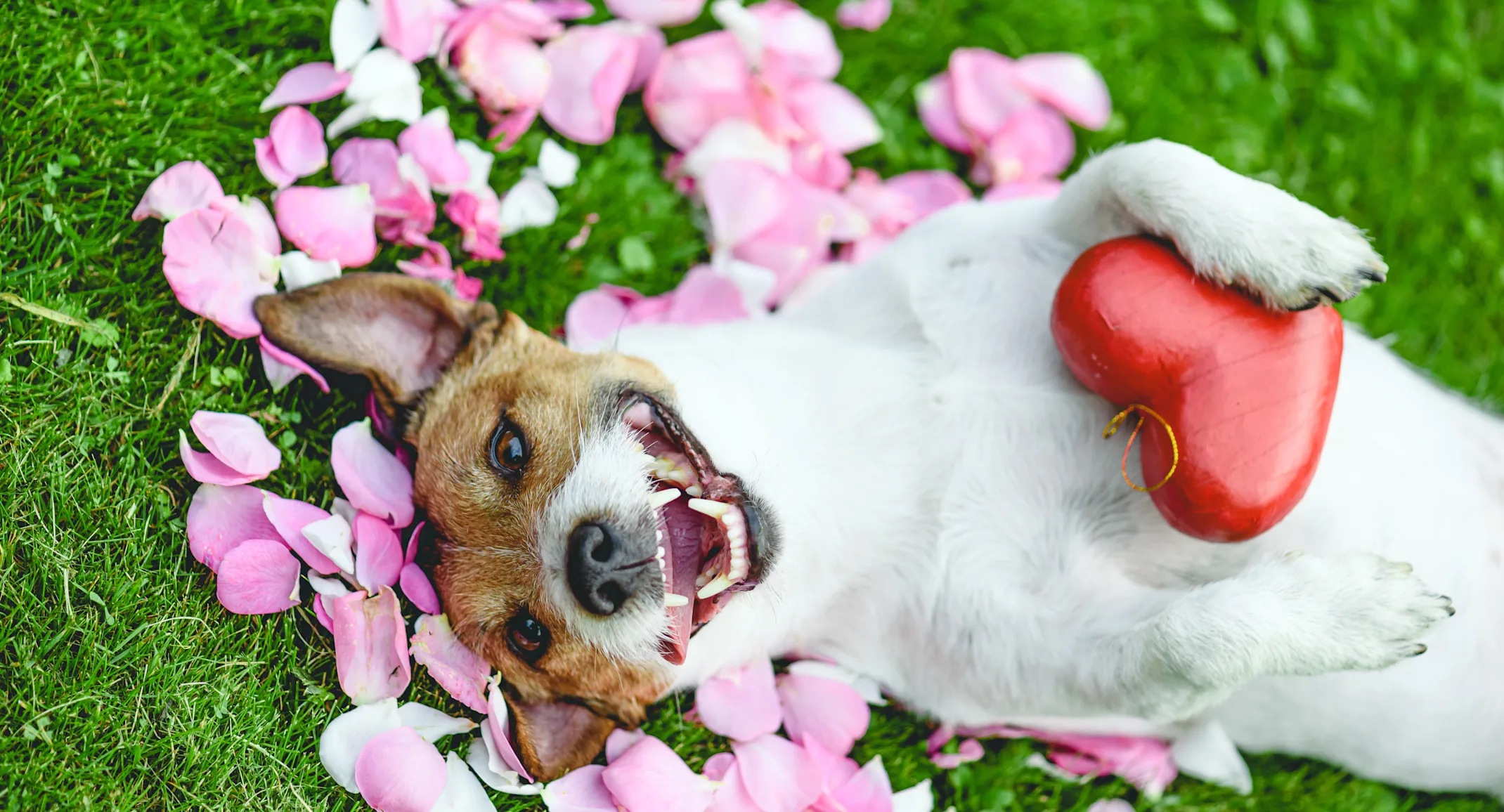Is your pet the love of your life?
Pet Safety

Celebrate safely this Valentine’s Day by keeping your pet away from the following:
Sweets
Chocolate – smooch your pooch this Valentine’s Day but avoid chocolate kisses! That goes for all types of chocolate, especially baking and dark chocolate. Chocolate can cause vomiting/diarrhea, panting, excessive thirst/urination, hyperactivity, increased heart rate, tremors, seizures, and even death.
Candy & Other Sugary Treats – Excessive amounts of sugary treats can lead to hyperactivity, increased heart rate, upset stomach, and vomiting/diarrhea. Avoid candy/food containing grapes and/or raisins --these may cause acute kidney failure. And don’t forget to throw out the candy wrappers – they may cause an upset stomach or intestinal blockages.
Sugar-Free Chocolate/Candies – any food, treats, gum, or candy containing the artificial sweetener, Xylitol, is known to cause life-threatening low blood sugar and liver toxicity.
Flowers
Roses – pets may find the sweet scent of a rose attractive, until they discover the thorns. Make sure your pet isn’t able to chew on, step on, or swallow these stems, which could result in serious pain, injury, and infection.
Lilies – Cats are known to be sensitive to an unknown toxin found in these lily species. Ingestion of this toxin results in renal (kidney) failure within 24 to 48 hours. Avoid giving this lovely plant to your beloved if he/she lives with a feline friend.
Presents
Wrapping Paper, Ribbons, Bows – pets often find gift wrap to be fun and fascinating decorations. This is especially true for cats. If ingested, any of these items can get trapped in the intestines. This requires immediate veterinary attention and can be life threatening if not addressed.
Fire
Candles – candles can be romantic but cats may see them as a toy, causing a burn risk, and a wagging dog’s tail can easily knock one over resulting in a fire hazard.
Fireplaces – make sure fireplaces are protected by safety screens to keep pets from getting too close.
Alcohol
Wine and champagne may help contribute to the romantic ambiance but a little alcohol can cause a lot of harm to an innocent pet. Symptoms of alcohol ingestion include difficulty breathing, lack of coordination/difficulty walking, vomiting, diarrhea, sedation, and coma. Vomiting may cause a pet to aspirate (vomiting and inhaling the vomit into the lungs), resulting in pneumonia.
